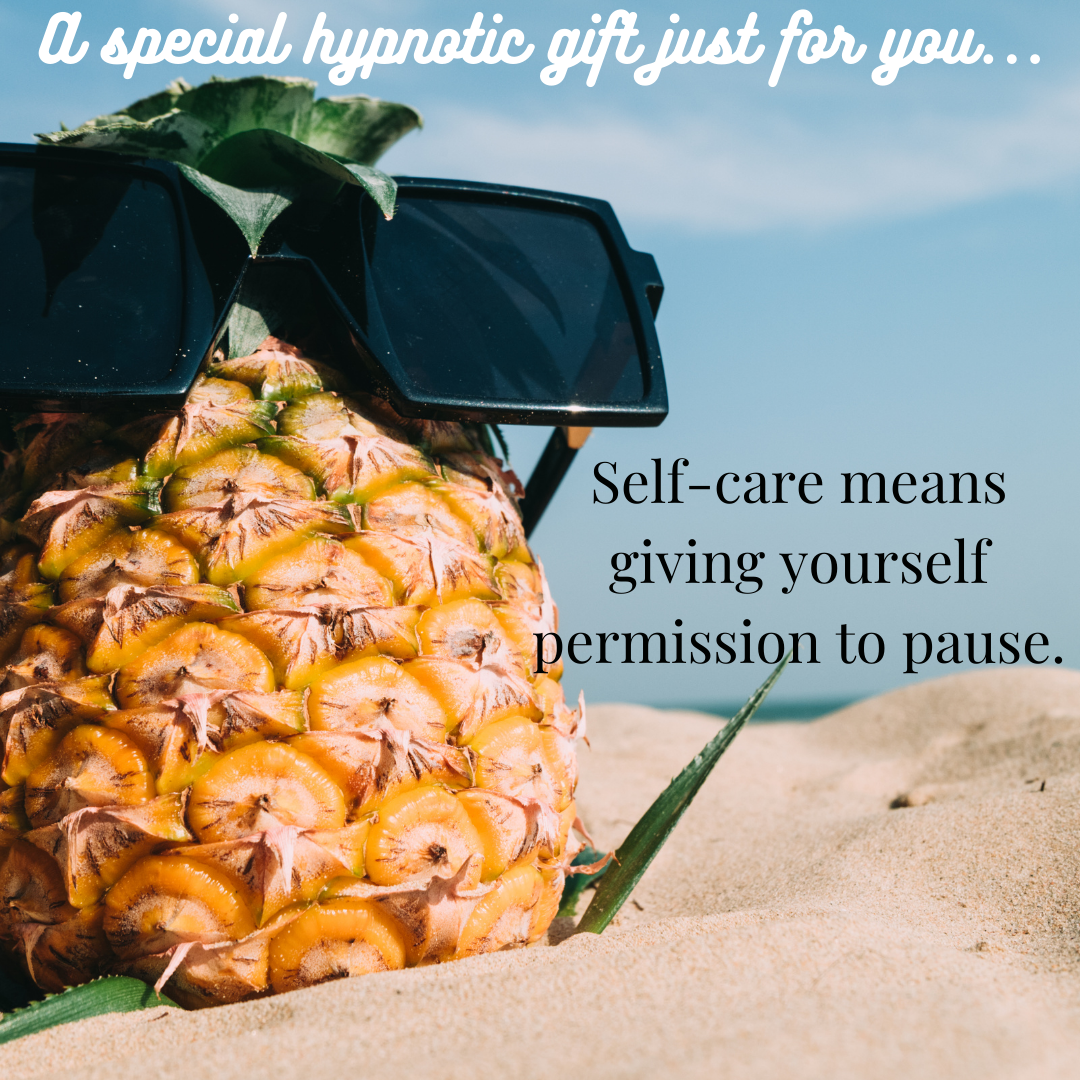Hypnosis for Stress and So Much More!
Master Hypnosis for Stress and So Much More Like a Pro:
Hypnosis for stress, and other issues, is a technique used to induce a heightened awareness and ability to focus in the subconscious mind. The hypnotic state can occur naturally in our everyday lives. For instance, if you’ve ever found yourself so engrossed in a book that you stopped noticing what was happening around you, then you’ve experienced a mild hypnotic state. Your awareness and focus were turned inward, toward your book. Of course, the goal in hypnosis is to focus on positive messages that are goal-oriented and solution-based.
What Is Hypnosis?
Most people can be hypnotized to varying degrees. A deeper hypnotic state may be achieved with practice. But, great work can be accomplished even in a light hypnotic state. Anyone with a desire and a willingness to concentrate can experience hypnosis.
Given the multitude of stressors and negative messages we are faced with everyday, it is no wonder that so many of us become sick, worn out, anxious, and depressed. The body and mind do not work optimally when dealing with chronic stress.
Most of us have hypnotized ourselves, sometimes over the span of our lifetime, with very stressful and negative messages. We carry deeply ingrained messages from childhood into adulthood. Some of these messages are positive and help us make successful choices. Others are negative and may guide us into failure.
Hypnosis for stress can help bring
your body and mind into a relaxed state. In a hypnotic state, your
brain waves function at an optimal level for receiving information. What
is this information? Messages that are positive and solution-based for
achieving your goals! Through hypnosis, you are harnessing the power of
your subconscious to program your mind and body for positive mental and
physical results. Hypnosis helps you home in your awareness on positive
insights so that you no longer succumb to the maladaptive effects of
stress and negativity. In essence, you are taking control of your
choices, your feelings, your behavior, and your success through
reprogramming your thoughts!!
|
Research indicates that we are better able to learn, process information, and remember when we are relaxed. This makes sense! Think of the last time you were stressed out. Were you thinking clearly? Were you making the best possible choices for reaching your goals? When caught up in stress, most of us become overwhelmed with negative thoughts, bad moods, and unsuccessful behavior patterns. |
Self Hypnosis for Stress
Self-hypnosis is all about programming your mind with
positive messages. As with any thought process that gets deeply
ingrained in the brain, it doesn't happen with a one-shot deal, although
you will feel a difference after trying this once. Practice makes
perfect! Practice self-hypnosis for 30 days, and you'll definitely
experience a difference.
It can be helpful to practice
self-hypnosis right before going to sleep. Research shows that brain
wave lengths right before going to sleep are optimal for inculcating
messages. In other words, you are more suggestible right before going to
sleep. You can, however, practice self-hypnosis anytime you feel
comfortable. Just don't do this while driving!
You can place yourself in a relaxed state in various ways, such as progressive muscle relaxation and diaphragmatic breathing.
Hypnosis for Stress: Self-Hypnosis
A - Start by putting yourself into a relaxed state.
B - Tell yourself (aloud or in your head) your positive statement.
1. Before getting started, reduce distractions. Turn off the TV, phone, etc.
2. Sit or lie down in a comfortable position.
3. Close your eyes.
4. Take a deep breath in.
5. Exhale slowly and say "25" in your head.
6. Take another deep breath in.
7. Exhale slowly and say "24" in your head.
8. Continue this breathing pattern as you count backward from 25 to 0.
9. When you reach 0, tell yourself the positive statement.
Examples:
“Every day in every way, I feel healthier and healthier.”
“I am in control of my response to stress.”
"I feel a wave of relaxation go through my body. I feel relaxed from my head to my toes. I am in control of my relaxation and can call upon it at any time."
Repeat this message 10 times.
10. Take a deep breath in.
11. Exhale slowly and say "0" in your head.
12. Take another deep breath in.
13. Continue this breathing pattern as you count from 0 to 25.
Hypnosis for Stress: How Does Hypnosis work?
According to the American Psychological Association (APA.org) hypnosis for stress is a therapeutic technique in which clinicians make suggestions to individuals who have undergone a procedure designed to relax them and focus their minds.
Although
hypnosis for stress management has been controversial, most clinicians
now agree it can be a powerful, effective therapeutic technique for a
wide range of conditions, including pain, anxiety and mood disorders.
Hypnosis can also help people change their habits, such as quitting
smoking.
How Does Hypnosis Work? ~ adapted via hypnosisdownloads.com
The
word "hypnosis" has always had a bit of mystique about it. Swinging
watches, loss of control, catalepsy, hallucinations – all that kind of
thing.
It’s a shame that
hypnosis has become more widely understood as ‘entertainment’ than as
the powerful tool it is to change mood, overcome psychological problems
and ease – and sometimes even cure – many physical problems. Hypnosis is
also a wonderful way to maximize performance in any field.
Scientific recognition of hypnosis for stress and other applications
Clinical
hypnosis has a good scientific pedigree and is an essential tool in
helping overcome all kinds of emotional difficulties. It has proved
difficult to define "hypnosis" precisely, so much so that some have
asserted that it is nothing more than "role playing." However, PET scans
of hypnotized subjects have shown clearly observable changes in brain
functions. I want to draw attention to some of the research findings
that support why hypnosis for stress, and other issues, is such a
valuable tool.
Hypnosis for stress, healing, pain control, and immune response
People
often talk about the "mind-body connection," knowing the mind can
soothe the body (and trouble it too!) There is scientific evidence that
backs this belief up, showing that hypnosis can powerfully use the mind
to influence the body.
For
example, a 2007 study found that women who were hypnotized before
undergoing a breast biopsy or lumpectomy required less sedation during
the procedure, and experienced less pain, nausea, and emotional distress
afterward.
Hypnosis has
been found to be effective when treating acute pain after accidents and
for chronic long term pain or disease, as well as for skin conditions.
There is also evidence that hypnotic imagery can enhance the workings of
your immune system.
In a
study at Washington State University, a group of volunteers were given
hypnotic suggestions specifically to boost their immune systems. Another
group received only relaxing suggestions, or no suggestions. Their
levels of T- and B-cells (special defense cells) were measured. Those
who had received hypnotic suggestions showed significant increases in
their levels of protective cells. This shows that hypnosis can have a
profound beneficial effect on the workings of your body.
Hypnosis for stress, anxiety, fears, and phobias
Hypnosis has long been used to overcome fear and anxiety and also to quickly and comfortably cure phobias. Many hypnotherapists use disassociation, a powerful hypnotic technique, which has been shown to reduce fear by making troubling memories feel comfortable and much "safer." A good hypnotherapist can make overcoming fears and anxiety an entirely comfortable process.
Researchers at the Stanford University School of Medicine carried out a study on children who were (not surprisingly) anxious about painful medical examinations. Forty-four children participated. All had been through at least one distressing examination in which a catheter was inserted into the bladder.
Chemical anesthesia isn’t used with this procedure and children report great fear when they have to undergo it.
About
half the children received self-hypnosis training while the other half
received routine care, which included a preparation session with a
recreational therapist who taught some breathing techniques. The group
who were taught self-hypnosis reported much less anxiety and the
examinations in their group even took less time.
This research shows power of using hypnosis for stress relief.
Hypnosis for stress, self-esteem, and self-confidence
Emotional
problems stem not just from what people think but from how they use –
or, more accurately, misuse – their imagination. People imagine all
kinds of damaging things about themselves. Therapeutic hypnosis uses the
imagination constructively to embed self confidence and encourage a
healthy sense of who you are and what you can be. Research shows that
socially anxious people, for example, focus less on other people and
more on their own feelings. So one of the approaches we use in our
social confidence related sessions is to encourage outward focus during
social situations. This increases confidence as a byproduct of focusing
in the same way that naturally self confident people do.
Hypnosis for stress, insomnia, and sleep disorders
Insomnia
and other sleep disorders can be caused and, in turn, worsened, by
anxiety and stress. So a vicious cycle of stress, exhaustion and
insomnia can build up, with one feeding off the other. People turn to
hypnosis because it offers a natural approach to calmness and rest,
without the side effects some pharmaceutical drugs have. As far back as
August 1973, 37 college students with insomnia were assigned one of
three treatments for a study:
• No treatment
• Progressive relaxation (with no other suggestions)
• Hypnotic relaxation (with suggestions to sleep better).
After
three therapy sessions, the progressive and hypnotic relaxation groups
showed significantly greater improvement than the no-treatment controls. Hypnosis proved significantly more effective than just the
relaxation training.
|
Hypnosis in the treatment of depression It used to be thought that hypnosis was not suitable for people with depression. Now we know that hypnosis, used expertly, is a wonderful tool in helping treat depression. It helps to still the mind, which is just what depressed people who chronically ruminate need. It calms down the mind and body – extremely helpful, as depressed people always have higher than normal levels of the stress hormone cortisol. |
Hypnosis helps people sleep better, recoup lost energy and rehearse new positive behaviors, as well as building motivation to meet their emotional needs in satisfying ways.
That’s why hypnotherapy sessions focusing on topics such as better sleep, calming anxiety, boosting self-esteem and self-confidence can all help depressed clients.
Hypnosis and the treatment of anger issues
Anger can be very damaging, and not just to relationships or peace of mind. Chronic anger is the biggest predictor of early death through heart disease; bigger even than chronic smoking. Anger can be thought of as a type of ‘negative trance state’. We all have an imagination, but misusing imagination can create problems for us (think: jealousy, hypochondria, pessimism... and anger). Anger can be generated – and aggravated – through misuse of the imagination.
In a study conducted at Stanford Medical School, heart patients were asked to recall times when they had been angry. Although the patients said that the anger they felt on recalling the events was only half as strong as it had been originally, their hearts started pumping, on average, 5% less efficiently. Cardiologists view a 7% drop in pumping efficiency as serious enough to cause a heart attack.
Imagination and recall are processed through the same parts of the brain. You can generate angry feelings by remembering past anger, or imagining that you are angry. And anger creates very real physical changes. It makes sense to use the imagination constructively via relaxed hypnosis to stop anger being triggered too easily or too often.
Hypnosis for addictions and bad habits
The National Council for Hypnotherapy recently circulated information about research into the effectiveness of hypnotherapy as a way of stopping smoking.
To investigate the most effective method of stopping smoking, a meta-analysis at the University of Iowa looked at more than 600 studies, covering a total of nearly 72,000 people. The results included 48 studies of hypnosis covering 6000 smokers. They clearly showed that hypnosis was three times more effective than nicotine replacement therapy.
Overcoming addictions involves hope and optimism (moving beyond the old "disease model") of addiction. A good hypnotherapist can successfully treat all sorts of addictions - not just smoking, but alcohol and drug addiction, and more modern problems such as addiction to shopping and addiction to exercise.
Hypnosis for stress and instilling healthier habits
Bad habits can be replaced with good habits. For example, the bad habit of sitting down in front of the TV eating and boozing can be replaced with the good habit of eating well, doing more exercise and limiting alcohol.
Of course, some new habits (such as eating slightly more fruit every day) will be easier to instill than others (such as doing a daily three mile run). It’s been said that it takes 21 days to instill a new habit. We know something is a "habit" when we no longer have to really think much about it. It’s now become automatic to practice your instrument or work those muscles.
Hypnosis for stress can amplify motivation and, greatly speed up the adoption of a new healthy habit.
 |
Hypnosis and Sleep: Bye Hamster Wheel! Why Hypnosis Should Be Your New BFF |


